UNODC Counters Transnational Illicit Arms Trafficking and its links to organized and other serious crimes through the ratification and implementation of the UN Convention Against transnational organized crime and its Firearms Protocol, and through effective international cooperation and information exchanges
The UNODC’s project on Countering Transnational Illicit Arms Trafficking included several activities involving states from South America. In particular (i) One regional legislative harmonization workshop held in Buenos Aires, Argentina in 2012; (ii) Legislative assessment reports on compliance of national firearms laws and regulations with the Firearms Protocol, with gap analysis and recommendations, developed, and shared with 6 beneficiary countries (Argentina, Bolivia, Brazil, Chile, Paraguay and Uruguay); (iii) one cross-regional comparative analysis of the legislative and regulatory frameworks on firearms in South America was developed and disseminated; (iv) Support for the ratification of the Protocol (Ecuador and Venezuela) provided; (v) Tailored support for legislative review and reform processes was provided to 4 countries (Argentina, Bolivia, Ecuador, Uruguay) leading to the adoption of new firearms related legislation; (vi) Several technical and legislative tools were developed, updated and disseminated, including a revised version of the UNODC Model Law on Firearms which was disseminated in all UN languages and provided model legislative provisions and relevant comments addressing the links to the ATT; (vii) A comprehensive training curriculum on firearms that encompasses - in 20 modules - the most relevant aspects related to the control of firearms, from legal regulatory regimes to dealing with illicit activities. The curriculum formed the basis for the specialized training courses delivered to target audiences by UNODC; (viii) In South America, a series of training courses on “investigation and prosecution of firearms trafficking and related offenses”, were organized at national level between 2014 and 2015 (in Argentina, Bolivia, Paraguay and Chile), and a tripartite course on the border between Argentina-Brazil-Paraguay. These courses provided theoretical, legal, and practical knowledge on arms control issues, and on related criminal investigation, combining technical and legal knowledge on firearms with hands-on experiences on the use of investigative techniques and strategies against organized crime; (ix) In order to strengthen civil society and parliamentarians’ engagements, UNODC collaborated with several CSO in the region, held a specialized training courses for civil society organizations in Uruguay, and cooperated with regional Parliaments such as the Confederation of Parliamentarians of the Americas (COPA); (x) In December 2014 UNODC organized a regional seminar in Quito, Ecuador, for all South American countries focusing on international cooperation and exchange of good practices in arms control issues, including due attention to the ATT and the PoA; (xi) In March 2015, a Cross-Regional meeting in Vienna, Austria, brought together 27 countries from South America and West-Africa to help foster intercontinental dialogue between two regions of the most affected by the problem of firearms. Both the Regional Meeting of South America as the Cross-Regional Meeting South America-West Africa have been fundamental for the exchange of best practices in the fight against illicit manufacturing and trafficking of firearms and its links to transnational organized crime; (xii) Furthermore, through the project, UNODC launched a global initiative to conduct a “Study on the transnational nature, routes and modus operandi used in firearms trafficking” based on firearms seizure and trafficking data provided from Member States, and conducted to this effect a number of reach-out activities to work more closely with national focal points. Latin America was the region with the highest participation rate (11 countries). The 2015 Firearms Study was the first of this kind and laid the foundation for an ongoing and regular data collection work by UNODC, which will resume in 2017.
The UNODC’s project on Countering Transnational Illicit Arms Trafficking was aimed at preventing and countering transnational illicit trafficking in firearms by promoting the ratification and implementation of the Protocol against the Illicit Manufacturing of and Trafficking in Firearms, their Parts and Components and Ammunition, supplementing the United Nations Convention Against Transnational Organized Crime (UNTOC). The purpose of the activities comprised in this project was to address the challenges and threats posed by illicit manufacturing of and trafficking in firearms and its links to transnational organized crime and other serious crimes, including terrorism, through the ratification and implementation of the Organized Crime Convention and its Firearms protocol, and other related instruments (such as ATT, PoA, ITI, and relevant regional instruments). The geographical focus of the project was on countries in South America (Argentina, Bolivia, Brazil, Chile, Colombia, Ecuador, Paraguay, Peru, Uruguay and Venezuela), and in West Africa (Benin, Burkina Faso, Gambia, Ghana, Mali, Mauritania, Niger, Senegal and Togo), but included also several activities carried out at global level. The project aims at supporting Member States’ efforts to counter illicit manufacturing of and trafficking in firearms and related crimes through a holistic approach that addresses prevention and control in an integrated fashion, based on five major activity clusters: (a) the provision of legislative advise and legal drafting support; (b) technical assistance and capacity building activities aimed at strengthening national capacities to implement comprehensive arms control regimes and to strengthen criminal justice response capacities to investigate and prosecute firearms trafficking crimes and its links to transnational organized crime, as well as through the development of specialized legal and operational tools; (c) promote effective international and regional cooperation and information exchange; (d) support civil society and parliamentarians engagement in arms control; and (e) monitor illicit trafficking flows.




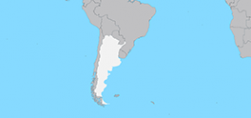
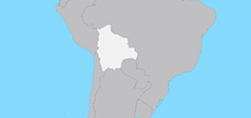
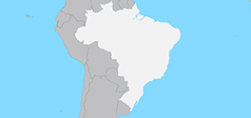
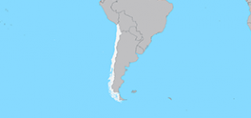
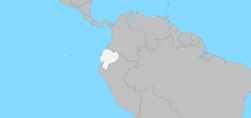
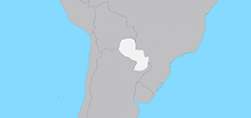

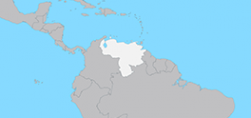


United Nations Office on Drugs and Crime (UNODC)
Address: Vienna International Centre
PO Box 500
A 1400 Vienna, Austria
Telephone: + (43) (1) 26060
Fax: + (43) (1) 263-3389
Email: info@unodc.org
Website: https://www.unodc.org/


